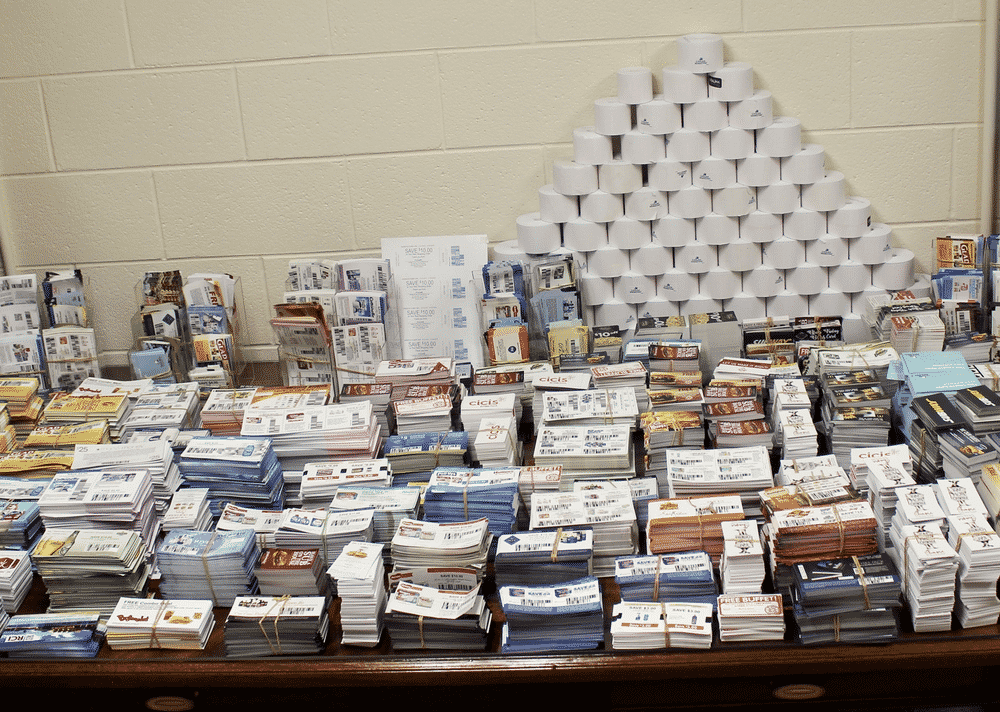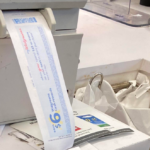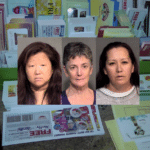
Coupons “in every crevice of the house.” High-end shopping sprees. Tens of millions of dollars worth of fraud. And then it all came crashing down.
That’s not the plot of some Hollywood movie – it’s the real deal.
Just as Queenpins‘ fictional version of coupon fraud was hitting theaters last month, two Virginia residents were finding out their fate for operating a real-life $31 million counterfeit coupon scheme. We’ve already heard the story from the perspectives of the perpetrators, the prosecutors and the victims. Now federal investigators are sharing new details about how they helped crack a record-breaking coupon fraud case.
The FBI has published a writeup about the major coupon counterfeiting investigation that led to the arrests and convictions of Virginia Beach couple Lori Ann and Pacifico Talens.
Both were initially charged back in April. Lori Ann Talens was accused of designing, printing and selling counterfeit coupons, while her husband was accused of helping her test them out and ship them to buyers.
A former customer tipped off the Coupon Information Corporation, which in turn alerted the U.S. Postal Inspection Service that it was able to link at least $125,000 worth of counterfeit coupons to the same seller. Postal Inspector Jason Thomasson contacted the FBI, and “Special Agent Shannon Brill was intrigued,” the FBI’s writeup reads. “It was a different type of case,” Brill said. So the two of them got to work.
The photo above shows stacks and stacks of counterfeit coupons and rolls of Catalina coupon paper seized from the Talens’ home in May of last year. The investigative team says it discovered “fake coupons — worth more than $1 million — in every crevice of the house.”
“There were coupons in every jacket pocket; they were stuffed in her vehicles,” Thomasson said. Investigators also seized dozens of “stolen rolls of the special paper stores use to print out coupons” that they say Talens obtained by offering some of her fake coupons to those with access to the paper.
Investigators had previously reported that a computer in the home contained designs for approximately 13,315 counterfeit coupons, for at least 132 different brands. Lori Ann Talens later admitted to creating, printing and selling tens of millions of dollars worth of coupons to buyers via the encrypted messaging app Telegram for at least three years. Prosecutors said the coupon business ultimately grew to become “one of the biggest counterfeit coupon schemes in history,” with the Talens earning some $400,000 in profits.
The FBI described where a lot of that money went: “high-end home renovations, including a new kitchen, sunroom, and in-ground swimming pool.” The Talens family “also took trips, shopped, and dined out while paying little or nothing for the things they consumed,” the FBI writeup continues.
Pacifico Talens ultimately pleaded guilty to mail fraud and was sentenced in August to more than seven years in prison. Lori Ann Talens was sentenced last month to 12 years behind bars, plus three years of supervised release – the longest prison sentence ever imposed in a coupon counterfeiting case. And both were ordered to jointly pay $31 million in restitution to the companies whose coupons they counterfeited and sold.
“While coupon fraud may sound like an insignificant crime, it creates painful ripples through the economy,” the FBI said – a conclusion echoed by a recent industry report on the wide-ranging economic impact of coupon fraud. “Anyone who buys anything will pay for those crimes,” Brill said. “Someone has to eat those losses,” Thomasson added. “It ultimately funnels down to us, the consumers.”
The movie Queenpins (spoiler alert) ended with the main characters who ran their own coupon fraud scheme getting a slap on the wrist and deciding to continue their crimes. But there was no such Hollywood ending for the Talens.
Or, possibly, for their customers. The FBI writeup on the case ends with an ominous warning. “The Talens investigation is not closed out,” it reads. “Those who participated in her group or engage in similar schemes should not be surprised if they hear from investigators.”
Those who create and sell counterfeit coupons already know they face serious consequences if, and when, they’re caught. Now those who buy and use counterfeit coupons are on notice – they just might be next.










